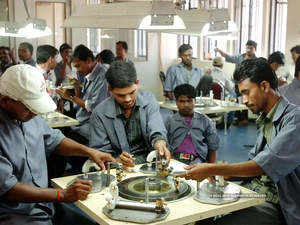 Agencies
AgenciesThey said labour law exemptions announced by Uttar Pradesh, Madhya Pradesh and Gujarat, except those relating to wages and safety, for a period of three years is a knee-jerk decision and it may not necessarily attract new investment.
"I haven't seen one industry body which has come forward and said it is euphoric about the announcements that these states have made,” said Lohit Bhatia, president for workforce management at Quess Corp. “We need simpler, easier, cheaper forms of labour legislation, but we don't have to do away with them."
Labour law reforms are much more than “hire and fire”, said Ashok Reddy, managing director of TeamLease. It has more to do with simplification of laws, reducing the multiplicity of various compliances, and digitising compliance rather than having an inspector visit, he said.
There are over 1100 Acts and 58,000 compliances regarding labour across sectors, and on average there could be 8-10 changes every day, Reddy said. Ensuring compliance is so complex that TeamLease has an 85-member team that only looks after compliance, he said. Reddy blamed the complexity of the regulatory framework for driving industries towards informal employment in the country.
Over 85% of the workforce in India is in the informal sector and the crisis faced by migrant workers will prompt formalisation of labour in the country, according to Suraj Moraje, executive director at Quess Corp. Outstation workers may not want to return without the safety net of a formal employment, he said.
It will also be in employers’ interest to formalise the workforce in the coming days, as labour will be more expensive and employers would want to increase productivity, Moraje said. A formal workforce is more efficient as there is continuity with the same workers showing up for work every day.
Reddy said the wage bill for industries may go up in the short term due to increased formalisation, but in the long run, it will balance out against higher productivity.









 Get Unlimited Access to The Economic Times
Get Unlimited Access to The Economic Times
